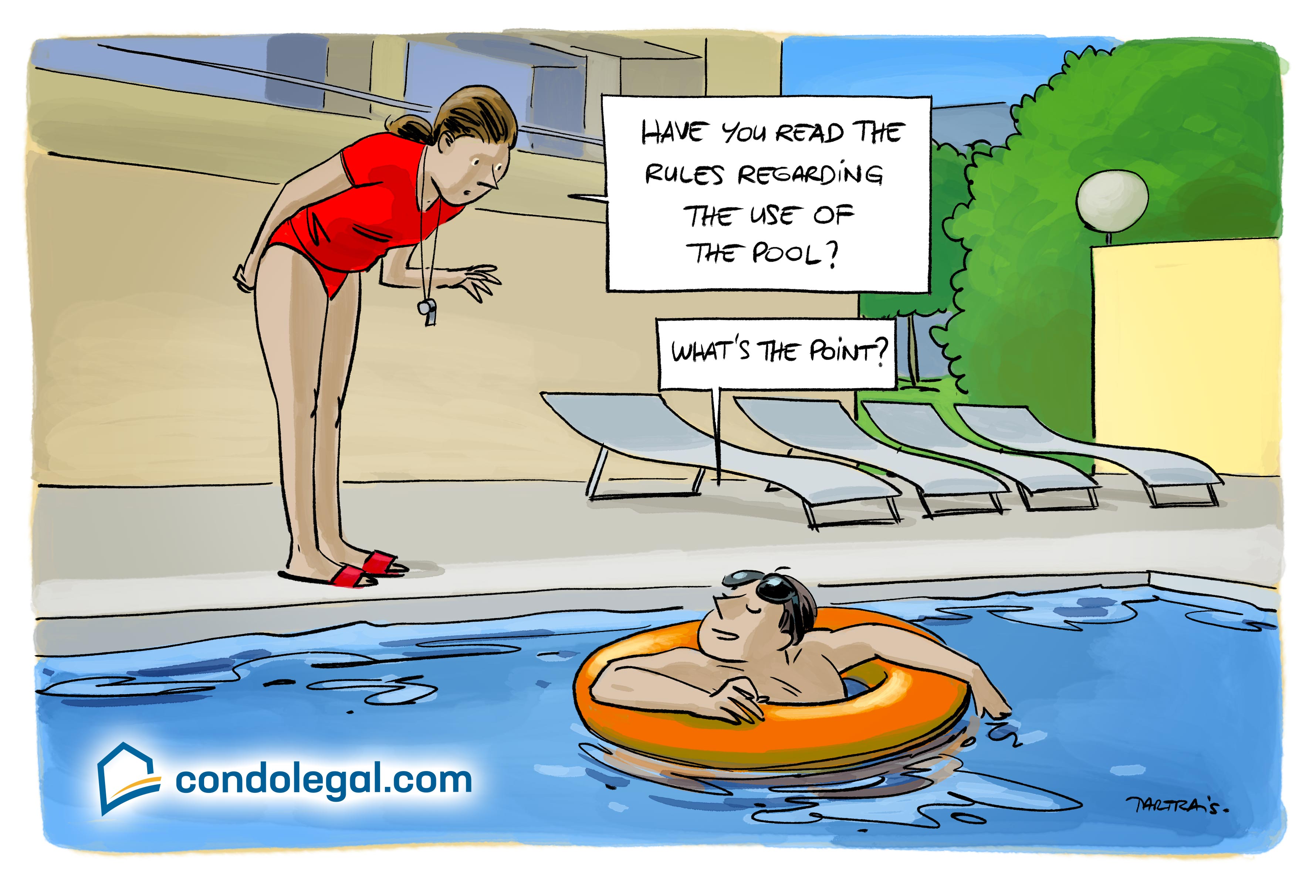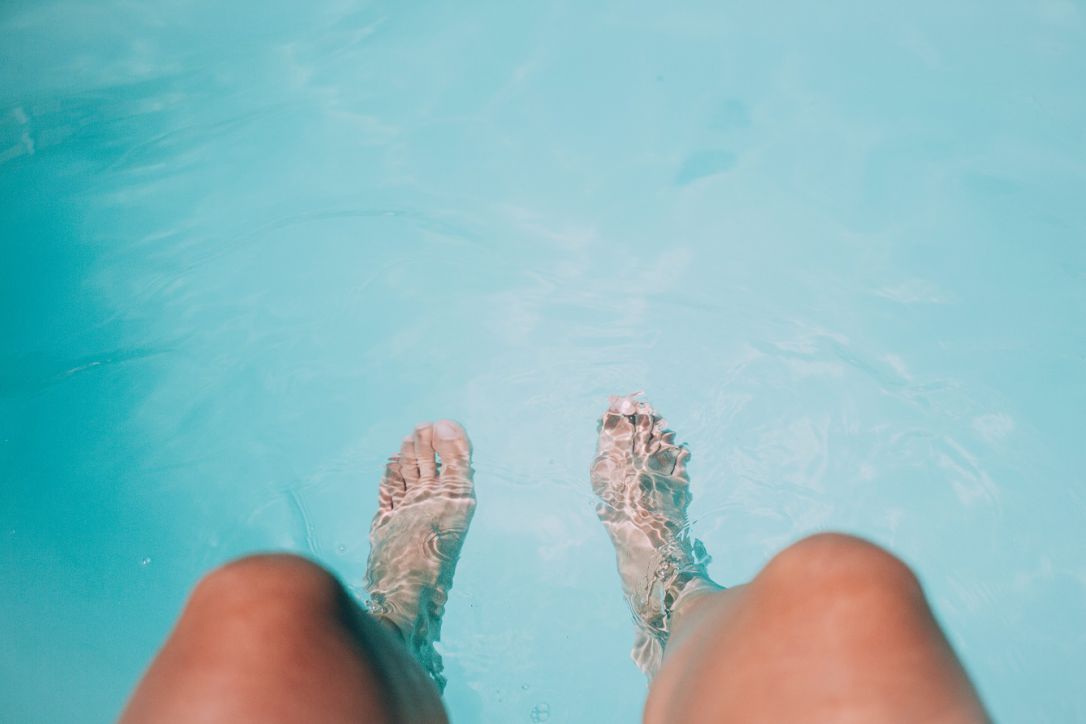
April 4, 2024 — Public and private pools rely on proper water chemistry to function adequately, ensuring they are safe for swimmers. Chlorine is the main disinfectant used, which has faced criticism in recent years due to concerns about it being carcinogenic. These claims are unfounded when it is properly dosed.
Complaints about excessive chlorine levels are common in shared properties, whether in a swimming pool or a hot tub. This leads to a chemical imbalance in the water, making chlorine extremely aggressive, not only causing irritation to the skin and eyes but also prematurely wearing out swimsuits. However, when used according to standards, chlorine is effective and does not cause inconvenience. To ensure this, regular analysis of chlorine as well as checking the pH, alkalinity, and water temperature is essential.
Not well known among Syndicates of co-owners
Unfortunately, this routine is not familiar to all syndicates of co-owners. The reason is simple: many directors are often volunteers and usually lack the knowledge required to handle this significant responsibility. This is especially true regarding aquatic facilities.
When a co-ownership is managed by novices responsible for real estate assets, including their equipment, worth millions of dollars, the consequences could be costly. It should be noted that under Article 1039 of the Civil Code of Québec, a syndicate of co-owners has a duty to maintain and manage the building and its common portions. Its directors must therefore act with caution and diligence
Avoid swimming in murky waters
Odyssée Aquatique's mission is precisely to stabilize the chemistry of water intended for swimming. The goal is to kill bacteria without harming users or damaging the mechanical components of a pool or hot tub. This task is complex and requires appropriate expertise to navigate these waters, so to speak! Experienced specialists, who can consult a chemist if needed, will know how to calculate the correct dosage to keep the water chemistry perfect.
The regulations regarding this chemistry are very precise. Indeed, municipal pools adhere to these parameters strictly. The chlorine level must not exceed two parts per million (ppm) nor fall below 0.8. To achieve this, water samples must be taken every three hours. If necessary, responsible persons will be tasked with restoring the balance.
Beware of the "Do-it-yourself" approach
Syndicates that work with us are aware of the complexities unique to aquatic installations. They understand that maintenance is not a luxury, but a necessity. Generally, however, their knowledge in this area ends there. This is why a syndicate should not undertake this maintenance themselves without the qualifications, as it could lead to unpredictable results.
Improper maintenance will almost certainly cause premature wear of pool components. The cost of repairing or replacing them could be prohibitive. Indeed, improper water chemistry is a primary cause of damage to aquatic facilities. For example, many syndicates of co-owners have a dehumidifier for their pool. This machine, which costs several hundred thousand dollars, recovers moisture from the surrounding air of the pool. This moisture is reused to heat its enclosure in winter and cool it in summer, as well as to maintain a stable water temperature. However, if the water is chemically unbalanced, the dehumidifier could suffer serious damage.
Salt: myths and realities
Some swimmers believe more in the virtues of salt in a pool. They imagine that this substance wonderfully replaces chlorine, due to a sensation of softness on the skin upon contact, and a sensation of buoyancy in the deep part. However, if there is salt in a pool, there is necessarily chlorine as well. Contrary to what these swimmers might think, salt does not act as a disinfectant. It is chlorine that does the job.
Water bodies equipped with a salt treatment system require the use of controllers, which are housed within the components intended for filtration. These controllers inject, electronically and via programming, the required doses of disinfectants (chlorine) into a pool. Meanwhile, an electrolytic cell, located in the water return line, distributes the necessary quantities of salt. It also produces chlorine. In summary, the impression of saline water and unparalleled softness is, in fact, the result of perfect chemical balance. And within which chlorine plays a crucial role.
Daniel Delorme
Chief executive officer
Odyssée Aquatique
To learn more about our products and services, contact us:
Odyssée Aquatique
2599 Boulevard Le Corbusier
Laval, Québec
H7S 2E8
Tél. : 450-680-1698
The columns express the personal opinion of their authors and do not in any way engage the responsibility of the site's publisher, CondoLegal.com Inc. The content and opinions expressed in a column are those of the author alone.


